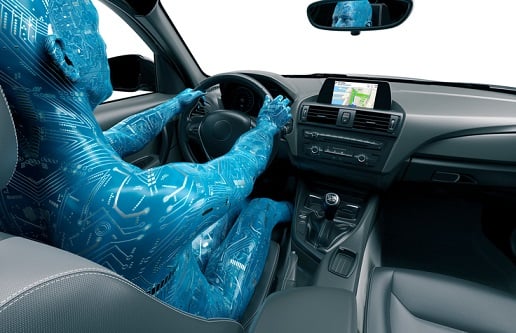The autonomous vehicle age is edging ever closer. Excitement is building among the insurance industry and anticipation about the impact of driverless cars has revved up a notch.
Nobody knows exactly how driverless vehicles will affect the auto insurance industry. Discussion is rife and predictions widespread, but no-one can say anything for certain - it could take decades before autonomous vehicles are commonplace on American roads and dictating insurance needs.
Celebrate excellence in insurance. Nominate a worthy colleague for the Insurance Business Awards!
So what can brokers do in the meantime? Relax and watch the process unfold, according to James Lynch, chief actuary at The Insurance Institute.
Autonomous vehicles are not going to change everything about auto insurance, said Lynch. Comprehensive coverage is likely to stay the same. A driverless car is just as powerless against a fallen tree or flooding as a manual vehicle.
One area where things could change is around liability coverage. It remains unclear who will be held accountable for collisions or vehicle fault in the autonomous vehicle era. Alongside that, the industry needs to consider the declining rate of accidents and the soaring cost of accidents when they do occur – an imbalance that will need to be addressed.
“There are two main things that insurance companies worry about: the accident rate and the size or cost of accidents,” Lynch told
Insurance Business. “The size of accidents has been increasing much faster than inflation for the last 50 years, and there’s no sign that autonomous vehicles will change that trend.
“The other question involved on the liability side is whether liability will shift from the owner of the vehicle to the manufacturer of the vehicle. It’s likely it could shift to becoming a product liability claim. It’s all dependent on what kind of laws and rulings promulgate over the next 10 to 20 years.”
Product liability claims tend to be far more complex than personal auto claims. They are less likely to be handled in an efficient manner because of the chain of potentially viable parties, such as the dealer, the manufacturer or the supplier.
Closing a product liability claim could take years, potentially leaving the injured parties in limbo. Insurers could solve this issue by the common practice of subrogation, but again it is not yet certain how this would work in the autonomous vehicle space.
“There is a positive aspect to a liability shift. If the liability were to shift to the manufacturer, it would more likely align the liability with the party at fault,” commented Lynch. “The insurance industry always wants liability to land on the party responsible for the mistake. Shifting liability to the manufacturers could be a good thing because it would place liability upon the party making the mistake.”
Liability coverage for autonomous vehicles is just one of many topics in debate. Things are likely to become clearer as Congress and the individual states start to pass laws and regulations about autonomous vehicles, but again this will take time.
“If I were a broker, I would give myself the opportunity to relax a little bit,” Lynch added. “Be vigilant and keep on top of things, but this is not a change that’s going to happen in the next five to 10 years.”
Related stories:
Toyota takes blockchain path to autonomous cars, UBI
Graffiti on road signs can confuse driverless cars - study


